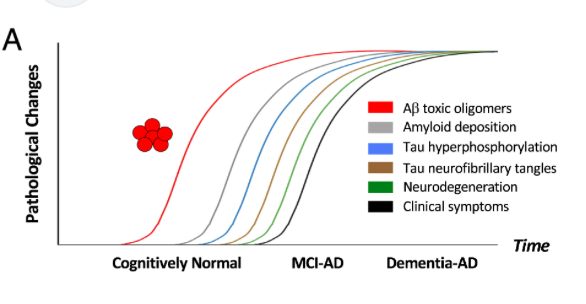University of Washington’s Valerie Daggett, Dylan Shea, and colleagues, have developed a lab test that can measure levels of amyloid beta oligomers in blood samples. Known as SOBA, the test detected, in a study of 310 subjects, oligomers in the blood of Alzheimer’s patients, but not in most of the control group, which had no cognitive impairment at the time of sample.
SOBA detected oligomers in the blood of 11 individuals from the control group. 10 were diagnosed, years later, with mild cognitive impairment or brain pathology consistent with Alzheimer’s disease. The exam record of the 11th member of the control group was not available.
SOBA (soluble oligomer binding assay) exploits a unique property of the toxic oligomers. When misfolded amyloid beta proteins begin to clump into oligomers, they form a structure known as an alpha sheet. At the heart of SOBA is a synthetic alpha sheet that can bind to oligomers in samples of cerebrospinal fluid or blood. The test then uses standard methods to confirm that the oligomers attached to the test surface are made up of amyloid beta proteins.
UW spinout company AltPep is working to develop SOBA into a diagnostic test for oligomers. In the study, the team also showed that SOBA easily could be modified to detect toxic oligomers of proteins associated with Parkinson’s disease and Lewy body dementia.
